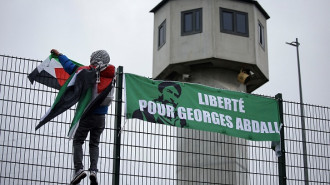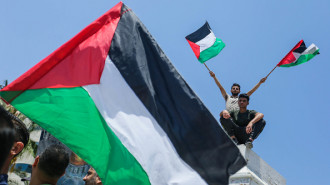Potential Israel ground operation in Lebanon would be 'swift': security official
An Israeli security official said on Friday that any ground operation against Hezbollah in Lebanon would be swift, as tensions rapidly escalate after nearly a year of cross-border exchanges of fire.
The comments come after top Israeli ministers rejected a truce plan proposed by Israel's key backer the United States and its allies, seeking to prevent all-out war.
The security official, briefing journalists on condition of anonymity, said Israeli forces were "preparing every day" for a potential ground invasion.
"We will try to do it as short as we can," said the official, without providing a clear timeline or specifying what would be the objectives of a ground campaign.
Israel's military claims that operations in Lebanon are to "downgrade Hezbollah's capacity" to fire on Israel, eliminate the group's military leadership and "clean" the border areas from fighters, he said.
Hezbollah fighters began firing on Israel shortly after Tel Aviv began waging its deadly war on the Gaza Strip on October 7, in what the Iran-backed Lebanese movement says is in support of its allied Palestinian group.
The security official said that Israeli air strikes in recent days had killed many Hezbollah militants and significantly curtailed the group's military power.
"I think that they lost many capabilities," the official said.
Lebanon's health ministry says over 700 people have been killed since Monday, including children. The ongoing aggression has triggered the displacement of at least 118,000 Lebanese to different parts of the country, as well as to neighbouring countries.
Israel's military chief, Lieutenant General Herzi Halevi, raised the possibility of a ground operation against Hezbollah this week, and the security official said on Friday that "all options are on the table".
The security official pushed back on accusations that the Israeli strikes were killing civilians in large numbers, calling the campaign "very precise, very accurate".
"Many of them (the dead) were Hezbollah," he said, also accusing the armed group of using civilians as human shields and "putting ballistic missiles inside an apartment".
On Thursday several Israeli ministers rejected a 21-day truce proposal put forward by the United States and its allies.
The spotlight is now on Prime Minister Benjamin Netanyahu, who has pledged to keep fighting Hezbollah and is due to address the UN General Assembly later on Friday.
Hezbollah has said it would stop firing on Israel once there is a ceasefire in Gaza.
But the security official said Israel would like to "de-link" the two fronts and avoid giving its enemies "the leverage of (a) coalition or axis".
The official also stressed that Israel's ties with "our best partner" the United States remained strong, despite increasingly vocal opposition from Washington to Israel's war policies.
"After a very tough year, still I think that they are with us," he said.
And, the official added, other countries in the Middle East - which have also criticised Israel's actions in Gaza and more recently in Lebanon - were in fact backing it.
"From a strategic point of view, the first thing our neighbours want to see is that we are strong enough that we can hold those threats that also threaten them," the official said.
![Israeli aggression against Lebanon [Getty]](/sites/default/files/styles/large_16_9/public/2173874144.jpeg?h=a5f2f23a&itok=gy08yGlk)






 Follow the Middle East's top stories in English at The New Arab on Google News
Follow the Middle East's top stories in English at The New Arab on Google News

![Aid Gaza [Getty]](/sites/default/files/styles/image_330x185/public/2010004231.jpeg?h=cb957c44&itok=NpHeiZFt)
